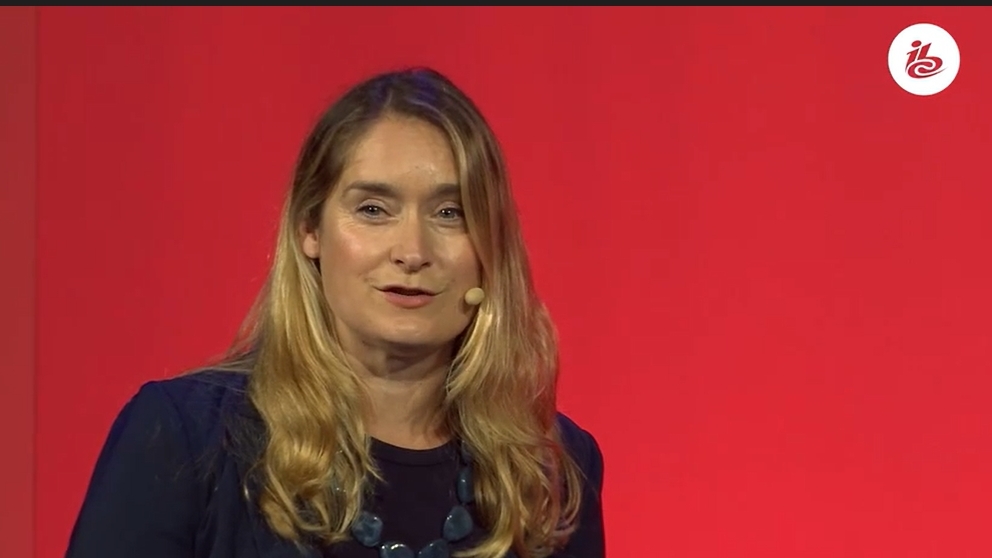One of the largest media conglomerates in the Arab region, United Media Services (UMS) is to showcase its latest achievements in terms of harnessing technology, reaching new audiences and competing with rivals in its session today (15 September) on the Showcase Theatre.
Scheduled to take part from 12:30-13:15, ‘United Media Services, Egypt: Reconfiguring an established media ecosystem by embracing disruptive innovation’ will see UMS CEO Amr El Feki in discussion with leading Egyptian media executive Nashwa Gad, CEO, Clicks and Chairwoman and MD of streaming service Watch It (which is part of UMS). Together they will explore how UMS is forging a new approach to serving the interests of consumers and businesses across all Arab states, including through the definition of new business models and the introduction of technologies like AI into its production workflows.
“UMS’s participation in the IBC Showcase Theatre underscores its commitment to innovation, strategic growth, and fostering a media landscape that aligns with international standards,” says El Feki, who cites several key reasons for the company’s involvement such as an interest in the expansion of international partnerships, the showcasing of its expansive portfolio and commitment to content with “strong societal messages”, and the promotion of technological innovation.

One of the great appeals of the Showcase Theatre, adds El Feki, is that it provides a “global platform for presenting new ideas, productions and services. For UMS, which aims to maintain a strong presence in the Arab region while expanding internationally, this exposure helps reach a broader audience, including international media partners, investors and advertisers”.
Founded in 2016, UMS now owns more than 40 companies in media fields including visual, audio, print and electronic media, dramatic production, and advertising. UMS also combines sports rights knowledge and marketing expertise to deliver “fully integrated turnkey media services”.
The organisation’s focus on “adopting cutting-edge technology” has long been apparent, and in recent years has led to notable achievements in technology, audience reach and competition. AI and machine learning are among those to have yielded “significant progress”, including the implementation of AI-powered recommendation engines to refine personalised content suggestions and improve user engagement, and the enhancement of search functionality with AI – making it easier for viewers to identify specific content and for metadata management to be improved, thereby boosting discoverability.
Other highlighted developments include the utilisation of advanced video algorithms to improve streaming quality while reducing bandwidth consumption – “critical for regions with varied internet infrastructure” – along with the integration of FAST channels and creation of local-language content to reach new audiences. Anti-piracy has been another point of emphasis, with UMS utilising advanced content identification and takedown tools, including advanced technological tools and AI-driven monitoring systems, to eliminate illegal streaming and distribution.
As to his broader expectations for this year’s IBC Show, El Feki says he is keen to find out more about partnerships between traditional broadcasters and digital OTT platforms, emphasising collaboration in content creation and distribution; revenue partnerships and monetisation strategies, such as the expansion of the role of FAST channels and cross-platform partnerships; and AI-linked developments like the use of data analytics to improve recommendation engines, personalise content, and predict viewer behaviour and requirement trends.
El Feki is also expecting to encounter some of the latest developments in what he terms “video quality versus bandwidth efficiency”; in other words, “how emerging compression standards (like AV1) and cloud-based streaming technologies can deliver higher resolutions (such as 8K) without requiring vast amounts of bandwidth”.

IBC Accelerator programme kicks off in February
The IBC Accelerator Kickstart Day takes place at BBC Broadcasting House in London on 12 February 2025 and you can register to attend here.

IBC2024 sees growth across the board as AI takes centre stage
IBC2024 has announced that 45,085 visitors from 170 countries converged on the RAI Amsterdam on 13-16 September, bringing together the global media, entertainment and technology community to connect, showcase and discover innovations, tackle pressing industry challenges, and explore new opportunities.

Mstyslav Chernov warns of the impact of narrative manipulation in modern warfare
Journalist, filmmaker and war correspondent Mstyslav Chernov shared insights into his experiences covering conflicts, particularly the war in Ukraine, during an interview closing out this year’s IBC conference sessions.

Diverse hiring policies and established mentoring schemes essential for engaging future generations
IBC Talent Programme Part 1: At the wrap-up session on the final day of the conference, the IBC Talent Program highlighted the vital role diversity plays in shaping the future of the broadcasting industry.

IBC2024 celebrates pioneering media initiatives as it announces winners of IBC Innovation Awards
Innovative sports media and internationally acclaimed video journalism were celebrated today as the winners of the prestigious IBC Innovation Awards were announced at the RAI Amsterdam. The awards honoured the ground-breaking work of organisations transforming the media, entertainment and technology landscape, and recognise collaborative efforts to develop solutions that address real-world industry challenges.




